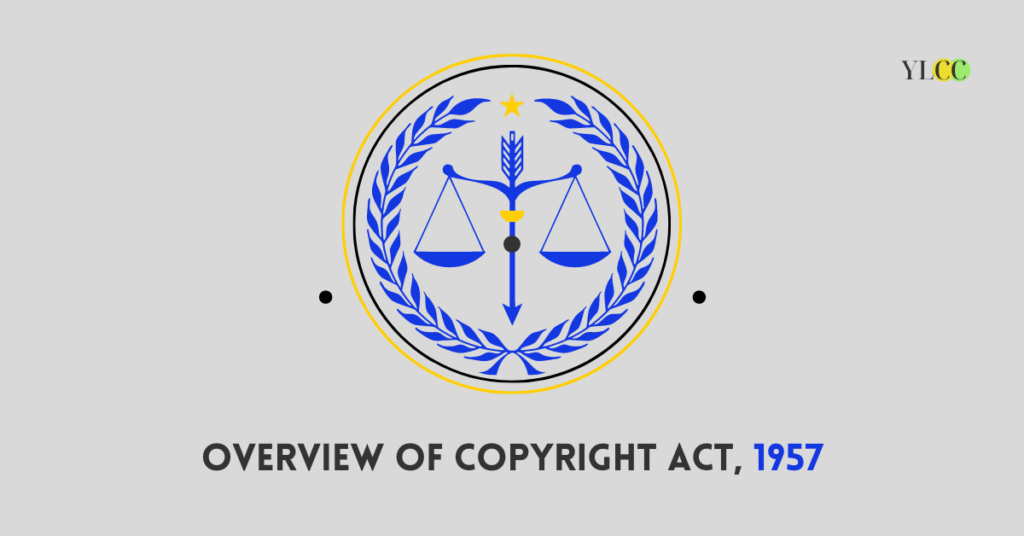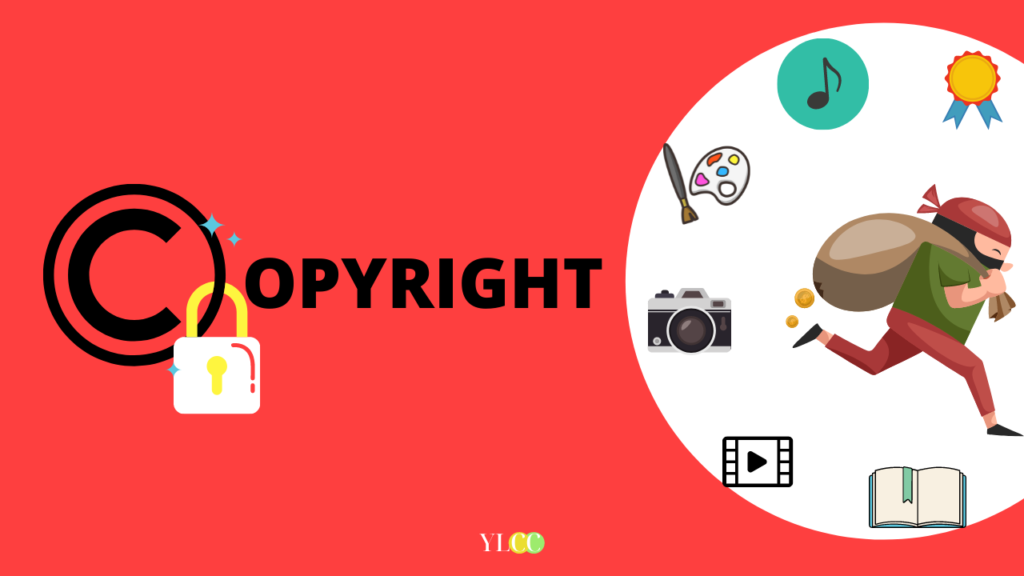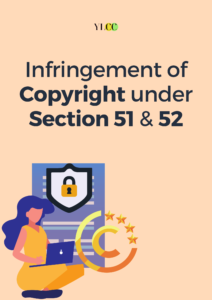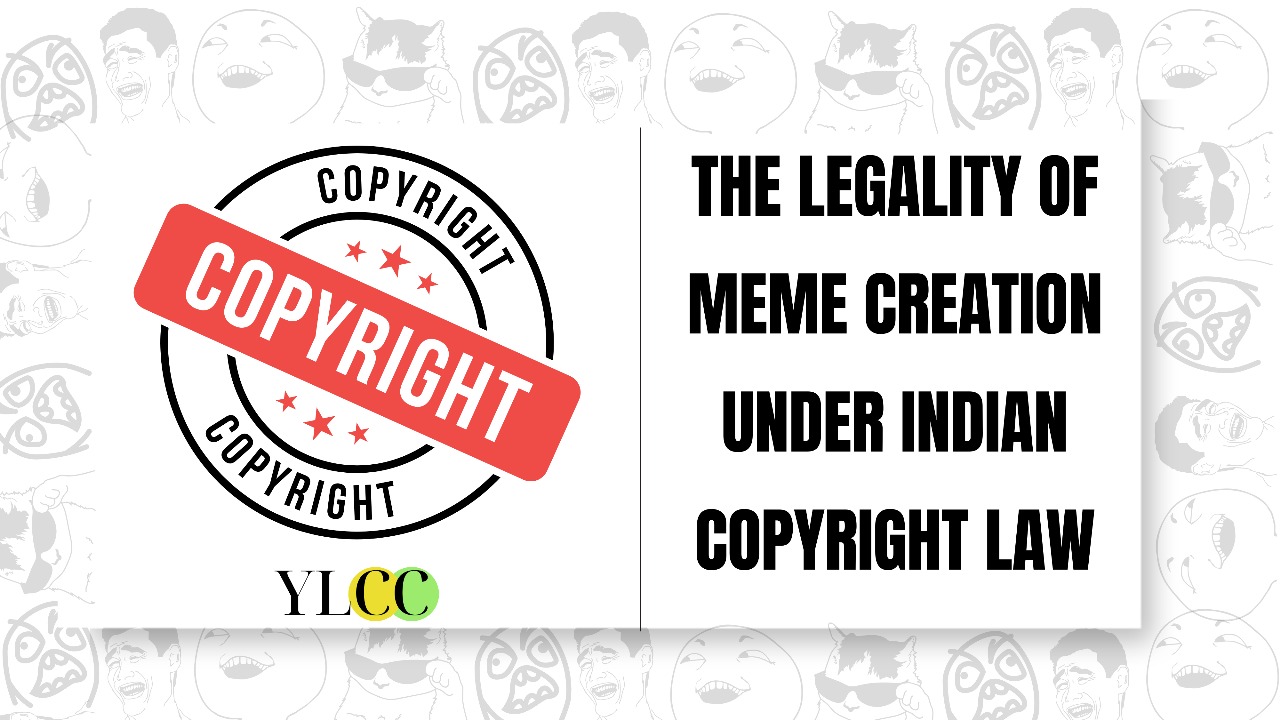
An Introduction:
Copyright is a form of Intellectual Property Rights that protects original literary, musical, dramatic, artistic works, cinematographic films and sound recordings.[1] Simply stated, it is the legal right to “copy”. The owner or creator has the right to sell, publish, print and reprint his/her original work. It is, in a way, the author’s personal property. The Copyright Act of 1957 (hereinafter referred to as the Act), which repealed the Copyright Act of 1914, is the primary statute that governs copyright laws in India. Copyright law’s fundamental purpose is to protect the fruits of one’s effort, expertise, etc., from being taken away by others. However, a person can use another person’s work with the consent of the copyright owner.
Copyrightable Work:
Section 14 of the Act defines copyright. The Act also defines works in which copyright subsists, such as original artistic, literary, musical, dramatic work, cinematographic films and sound recording. It also includes designs that are registered under the Designs Act, 2000 and do not have any copyright.
Ownership and Assignment of Copyright:
First ownership of copyright is vested in diverse individuals, subject to a contrary agreement. The copyright owner may also assign copyright to any person, totally or partially, for the whole term or any part of it. Every assignment of the copyright in any work shall be done in writing and signed by the assignor or by his agent. When the period of assignment is not specified, it is assumed to be five years from the date of assignment. If there arises any dispute with respect to assignment of copyright then the Appellate Board may, upon receipt of the complaint and after holding such inquiry as it considers necessary, pass such order as it may deem fit. Efforts should be made to pass the final order within a period of six months from the date of receipt of the complaint and in case of delay, the Board shall record the reasons thereof.
The author of a work may also relinquish all or any of the rights vested in the copyright by giving notice to the Registrar of Copyrights or by public notice, and such rights will cease to exist from that date. Within fourteen days of its publication in the Official Gazette, the Registrar must post the notice of relinquishment on the Copyright Office’s official website so that it remains in the public domain for at least three years.
Duration of Copyright:
Section 22 of the Act stipulates that copyright in published literary, dramatic, musical, and artistic works will last for sixty years from the beginning of the calendar year following the author’s death if published during the author’s lifetime. When a work is published anonymously or pseudonymously and the real name of the author is not disclosed, copyright subsists for sixty years from the year the work is published. Where the identity of the author gets disclosed before the expiry of sixty years, the copyright subsists for sixty years following the year in which the author dies.
In case of cinematographic films, copyright subsists for sixty years following the year in which it was released. Similar is the case with sound recordings, which have a copyright that subsists for sixty years following the year in which it gets published. Such is also the case in matters where the government or a public undertaking is the first owner.

Role of Appellate Board and Copyright Office:
The Act states that in order to get a work published or performed in public, a license must be obtained from the copyright owner. If any dispute arises regarding the date of publication or the term of copyright, then that dispute has to be decided by the Appellate Board constituted under Section 11 of the Act, whose decision is final.
Apart from the Appellate Board, the Act also establishes a copyright office, which is under the direct supervision of the Registrar of Copyrights, who act under the direction of the Central Government. Along with the Registrar of Copyrights, the Act also talks about the Deputy Registrar of Copyrights who discharges his functions under the direction of the Registrar of Copyrights. The Appellate Board has the power to regulate its own procedure, and it shall be deemed to be a Civil Court for the purposes of Sections 345 and 346 of the Code of the Criminal Procedure,1973 and all proceedings before the Board shall be deemed to be judicial proceedings within the ambit of Sections 193 and 228 of the Indian Penal Code, 1860.
Granting of License:
The owner of the copyright in any existing work or prospective owner of the copyright can grant an interest in right through a written license.
There must be compulsory licensing in works withheld from the public. According to Section 31, if the owner of the copyright refuses to republish the work, refuses to allow public performance of the work, or refuses to enable public communication by broadcast, a complaint can be filed with the Appellate Board. If the Appellate Board finds the complaint reasonable, after giving the owner a reasonable opportunity to respond and defend, it may order the Registrar of Copyrights to grant the complainant a license to republish, perform in public, or communicate in public, subject to payment of compensation to the copyright owner as determined by the Appellate Board. On payment of such amount as may be prescribed, the Registrar of Copyrights grants the license to such person or persons who, in the view of the Appellate Board, are qualified to do so in accordance with its directions.
Compulsory licensing can also be provided to persons working for the benefit of persons with disabilities. Such a person can apply to the Appellate Board, in such form and manner along with such fee as may be prescribed, to publish any work in which copyright exists for the benefit of persons with disabilities. The Board shall dispose of such applications as expeditiously as possible. An effort should be made to dispose of such applications within two months of receipt of the application. The Board then conducts an inquiry to satisfy itself, after which it instructs the Registrar of Copyrights to grant the applicant the requisite license to publish the work.

Records of Particulars:
Every copyright office maintains indexes and a register of copyrights in which names or titles of works, names and addresses of the author, and other required particulars are entered as prescribed. These indexes and registers of copyrights are open to inspection from time to time. Any person can make copies of and extracts from such registers or indexes on payment of a prescribed fee. This Register of Copyrights is prima facie evidence of particulars entered therein. Subject to some conditions, corrections in entries can be made. Every entry made in the Register of Copyrights, any correction made therein, or any rectification ordered shall be published in the Official Gazette or in any other manner as the Registrar of Copyrights may deem fit.
Copyright Society:
The Copyright Society is registered in accordance with the rules outlined in the Section 33 of the Act. Every copyright society is required to publish its tariff scheme in such a manner as prescribed, and any person who is dissatisfied with the scheme may file an appeal with the Appellate Board, which will make such orders as it deems fit after conducting such inquiry as it deems necessary. The society may accept exclusive authorization from the author or owner of the copyright to administer any right in any work through the issuance of licences or the collection of fees, or both. Every society is subject to the collective control of the author and other right holders whose rights it administers. Every society has to submit returns to the Registrar of Copyrights and reports to the officer duly authorized by the Central Government to ensure that the fees collected by the society in the administration of rights are utilized and distributed in accordance with the provisions of the Act.
Infringement of Copyright and Remedies:
Section 51 of the Act involves copyright infringement and Section 52 lays down acts which do not constitute a copyright infringement. Upon infringement of copyright, the owner of the copyright is entitled to such remedies as an injunction, damages, accounts and other remedies as are provided by law for the infringement of a right. The cost of all parties in any proceedings involving infringement of copyright is at the discretion of the court.
Where different rights, including copyright, are owned by different people, the owner of such right is entitled to the remedies provided by this Act. Along with the author’s copyright, he or she has some other special rights, such as the right to claim authorship of the work and the right to restrain or claim damages in the event of any distortion, mutilation, modification, or other act. The owner of the copyright must be named as a defendant in any civil suit brought by the licensee alleging infringement of the copyright. If successful, the owner of the copyright may file a new suit on the same cause of action.
Offences and Punishment:
The Act also talks about offences in which a person who knowingly infringes or abets in the infringement of copyright or other rights conferred by the Act. Such a person is punishable with imprisonment for not less than three months which may extends up to three years and a fine of not less than fifty thousand rupees which may extend up to two lakh rupees. Also, any police officer not below the rank of sub-inspector after his satisfaction of above-mentioned offences may seize without warrant all copies of work and produce them before a Magistrate. A court not lower than a Metropolitan Magistrate or a Judicial Magistrate of the first class must take cognizance of any offence under this Act.
Being one of the most important elements of intellectual property rights, copyrights and copyright laws are always evolving especially in accordance with the dictates of international organisations like WIPO. In India, where the market is becomingly increasingly competitive, awareness regarding IPR has immensely pervaded across not only metro cities but also other cities and smaller towns. Career opportunities in IPR are therefore in abundance, and those interested in the subject will do well to keep pursuing this field.
[1] The Copyright Act, 1957, No. 14, Acts of Parliament, 1957, § 2 (d).
YLCC would like to thank Keshav Sharma for his valuable inputs in this article.







